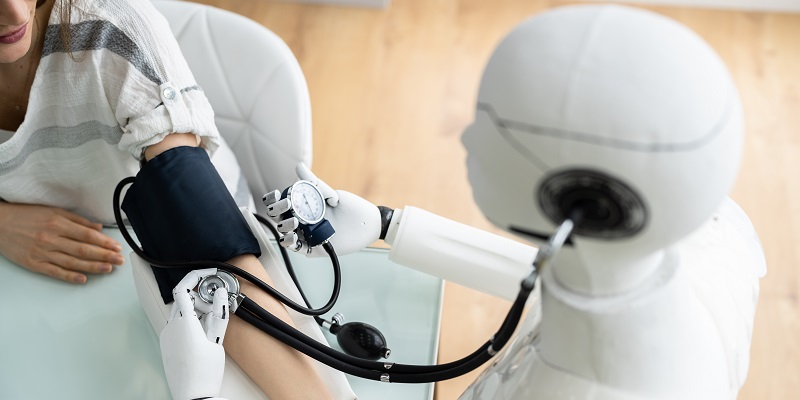In recent years, there has been a growing interest in the potential use of intelligent devices, such as robotics and artificial intelligence (AI), in various industries. The healthcare sector, in particular, has seen significant advancements in these technologies. Researchers in Japan have been investigating whether intelligent devices can replicate the values associated with nurses, such as advocacy, responsibility, teamwork, and care. While these technologies hold immense promise in improving healthcare procedures, it is crucial to consider the impact on nursing while integrating them.
Examination of robotics and AI developments
Japanese researchers have been at the forefront of studying the possibilities of robotics and AI in healthcare. With the aim of replicating the values and attributes of nurses, they have delved into the ethical implications and potential applications of these technologies. By integrating the principles associated with human nurses, they seek to determine if current breakthroughs in robots and AI can effectively implement these human attributes.
Consideration of nursing in the integration of technologies
While the integration of robotics and AI in healthcare procedures has the potential to revolutionize patient outcomes, it is vital to consider the role of nursing. Nurses not only provide medical care but also play a significant role in advocacy, emotional support, and collaboration with other healthcare professionals. Therefore, careful consideration needs to be given to how these technologies can enhance, rather than replace, the essential functions of nursing.
Recent advancements in robotics and AI
Advancements in robotics and AI technologies have been remarkable in recent years. These developments have demonstrated the immense potential of these technologies in various industries, including healthcare. From surgical robots to intelligent monitoring systems, robotic devices have proven to be highly precise and efficient. AI applications can educate patients about medical errors, provide treatment options, and even analyze vast amounts of medical data to assist in diagnosis. These advancements highlight the vast potential of robots and AI in transforming healthcare.
Towards Human-like Machines: Can Machines be “Human”?
One crucial question arising from the integration of intelligent devices in healthcare is whether these machines can possess human-like qualities. While robotics and AI can replicate certain aspects of human behavior, such as providing care, empathy, and communication, there remains a fundamental distinction between machines and human nurses. The ethics and implications of imbuing machines with human-like attributes are subjects of ongoing debate. Careful considerations must be made to ensure these machines are used ethically and responsibly.
Study details
The valuable research conducted by Japanese researchers has shed light on the integration of robotics and AI in nursing practice. Their study, which was made available online and published in the esteemed journal Nursing Ethics, focused on replicating the ethical principles associated with human nurses. By emphasizing advocacy, accountability, cooperation, and care, the researchers aimed to assess the capabilities of robots and AI in effectively implementing these principles.
Limitations of AI in comprehending patients’ values and relationships
While AI has shown promise in educating patients and providing treatment options, its capacity to genuinely comprehend and empathize with patients’ values and navigate complex human relationships remains in question. A critical aspect of nursing involves understanding patients holistically, taking into account their unique values, beliefs, and emotions. The ability to establish meaningful connections and provide personalized care is an area where human nurses excel and where AI may face limitations.
Collaboration with colleagues and healthcare professionals
Nursing practice thrives on effective collaboration with colleagues and healthcare professionals. Nurses play a pivotal role in multidisciplinary teams, ensuring comprehensive patient care. The report emphasizes that while robots and AI can contribute to patient care, the successful integration of these technologies depends on nurses’ ability to work seamlessly with their colleagues and other healthcare professionals. The synergy between human expertise and technological advancements is key to delivering the best possible treatment outcomes.
Ethical implications and potential effects on nursing practice
The use of robots and AI has the potential to alleviate the nursing shortage and enhance patient outcomes. However, it is vital to approach their integration with utmost care and consideration. Ethical implications, such as maintaining patient confidentiality, avoiding biases, and preserving human dignity, must be carefully addressed. Furthermore, the potential effects on nursing practice, such as changes in job responsibilities and professional identity, should be thoroughly evaluated. By incorporating these technologies responsibly and ethically, nurses can leverage their benefits while upholding the core values of their profession.
As the healthcare industry continues to embrace the integration of robotics and AI, it is essential to reflect on the human qualities and values associated with nursing that these technologies seek to replicate. While there have been significant advancements in robotics and AI, the distinct role of nurses in providing holistic patient care and collaborating with colleagues cannot be understated. The successful implementation of intelligent devices in healthcare hinges on careful consideration of their ethical implications and potential effects on nursing practice. By striking a balance between harnessing the benefits of technology and preserving human connection, nurses can continue to play a vital role in delivering exceptional patient care in the ever-evolving landscape of healthcare.

